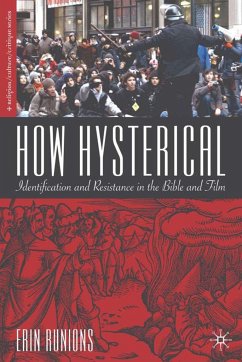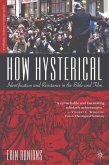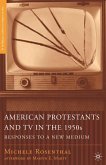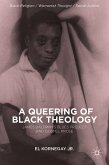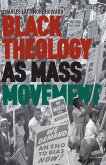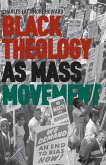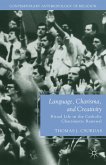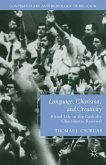How Hysterical reads scenes from the films Light It Up , Three Kings , Remember the Titans , Paris is Burning , Boys Don't Cry , and Magnolia alongside biblical texts from Numbers , Exodus , Isaiah , Micah , Ezekiel and Revelation . An innovation in studies on Bible and film, How Hysterical is less centred on direct citation of the Bible in film than on analyses of hypostasized biblical influence in culture. Here, through accessible engagement with feminist, queer, post-colonial and ideological critical theories, Runions discusses the processes by which biblical and filmic texts can both bolster and disrupt identifications with the norms that drive politics and culture.
Hinweis: Dieser Artikel kann nur an eine deutsche Lieferadresse ausgeliefert werden.
Hinweis: Dieser Artikel kann nur an eine deutsche Lieferadresse ausgeliefert werden.
"Through sophisticated transdisciplinary analysis of the nexus of the Bible and film, How Hysterical greatly advances our understanding of some of the politics, dynamics, and complexities of identity formation. It should have a great impact across several different fields, not the least of which I hope will be biblical studies." -Vincent L. Wimbush, Union Theological Seminary
"This book marks a major step forward in biblical and cultural studies. Runions offers a wise and incisive mapping of the complex circuits through which biblical themes and images circulate within popular culture. At the same time, she points us toward rich new possibilities for 'thinking otherwise'." - Randall Styers, Department of Religious Studies, University of North Carolina at Chapel Hill
"This book marks a major step forward in biblical and cultural studies. Runions offers a wise and incisive mapping of the complex circuits through which biblical themes and images circulate within popular culture. At the same time, she points us toward rich new possibilities for 'thinking otherwise'." - Randall Styers, Department of Religious Studies, University of North Carolina at Chapel Hill

